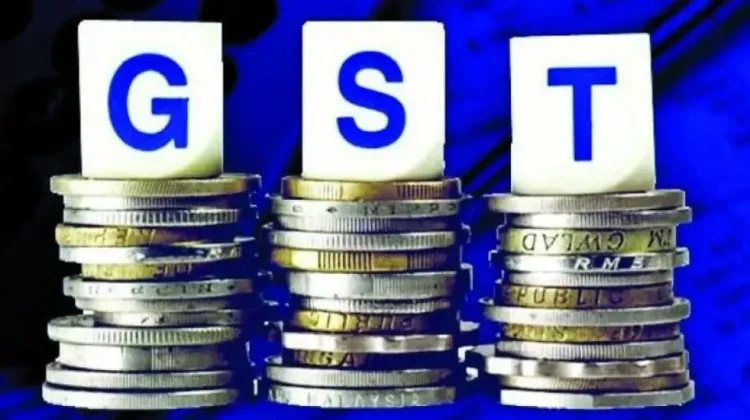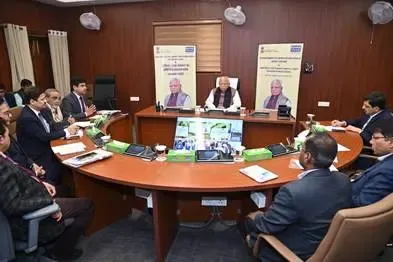India's GST Revenues Increased by 7.3% to ₹1.77 Lakh Crore in December 2024: Official Figures

New Delhi, Jan 1 (NationPress) In December, India witnessed a 7.3% rise in its goods and services tax (GST) collections, amounting to ₹1.77 lakh crore, compared to ₹1.65 lakh crore during the same month the previous year, according to data released by the government.
The Central GST collections reached ₹32,836 crore, while the State GST stood at ₹40,499 crore. The Integrated GST contributed ₹47,783 crore and cess collected amounted to ₹11,471 crore.
Domestic transaction GST collections saw an increase of 8.4%, totaling ₹1.32 lakh crore, whereas tax revenues from imports experienced a growth of approximately 4%, reaching ₹44,268 crore.
In November, the total GST collection was ₹1.82 lakh crore, reflecting an annual growth of 8.5%. The all-time highest collection was recorded in April 2024, exceeding ₹2.10 lakh crore.
During December, refunds of ₹22,490 crore were processed, marking a 31% increase from the same period last year. After accounting for refunds, the net GST collection improved by 3.3%, amounting to ₹1.54 lakh crore.
The GST collections have shown resilience throughout the current fiscal year, enabling the government to generate additional resources while controlling the fiscal deficit.
India's fiscal deficit from April to November of the current fiscal year is estimated at ₹8.47 lakh crore, which corresponds to 52.5% of the total anticipated for the fiscal year, as per official data released on Tuesday.
This situation indicates a robust macroeconomic environment, with the fiscal deficit remaining manageable as the government adheres to a path of financial consolidation.
The government is targeting a reduction of the fiscal deficit to 4.9% of the gross domestic product (GDP) for the current fiscal year, down from 5.6% in 2023-24.
The increase in tax collection provides the government with greater financial resources to invest in significant infrastructure projects, promoting economic development and supporting welfare initiatives for the underprivileged.
Moreover, it plays a crucial role in maintaining the fiscal deficit within limits and bolstering the economy's fundamental strengths.
A reduced fiscal deficit implies less need for government borrowing, thereby allowing more liquidity in the banking system for large corporations to borrow and invest, consequently enhancing economic growth and job creation.
Additionally, a lower fiscal deficit contributes to controlling inflation, which reinforces the economy's fundamentals and ensures sustained growth and stability.










